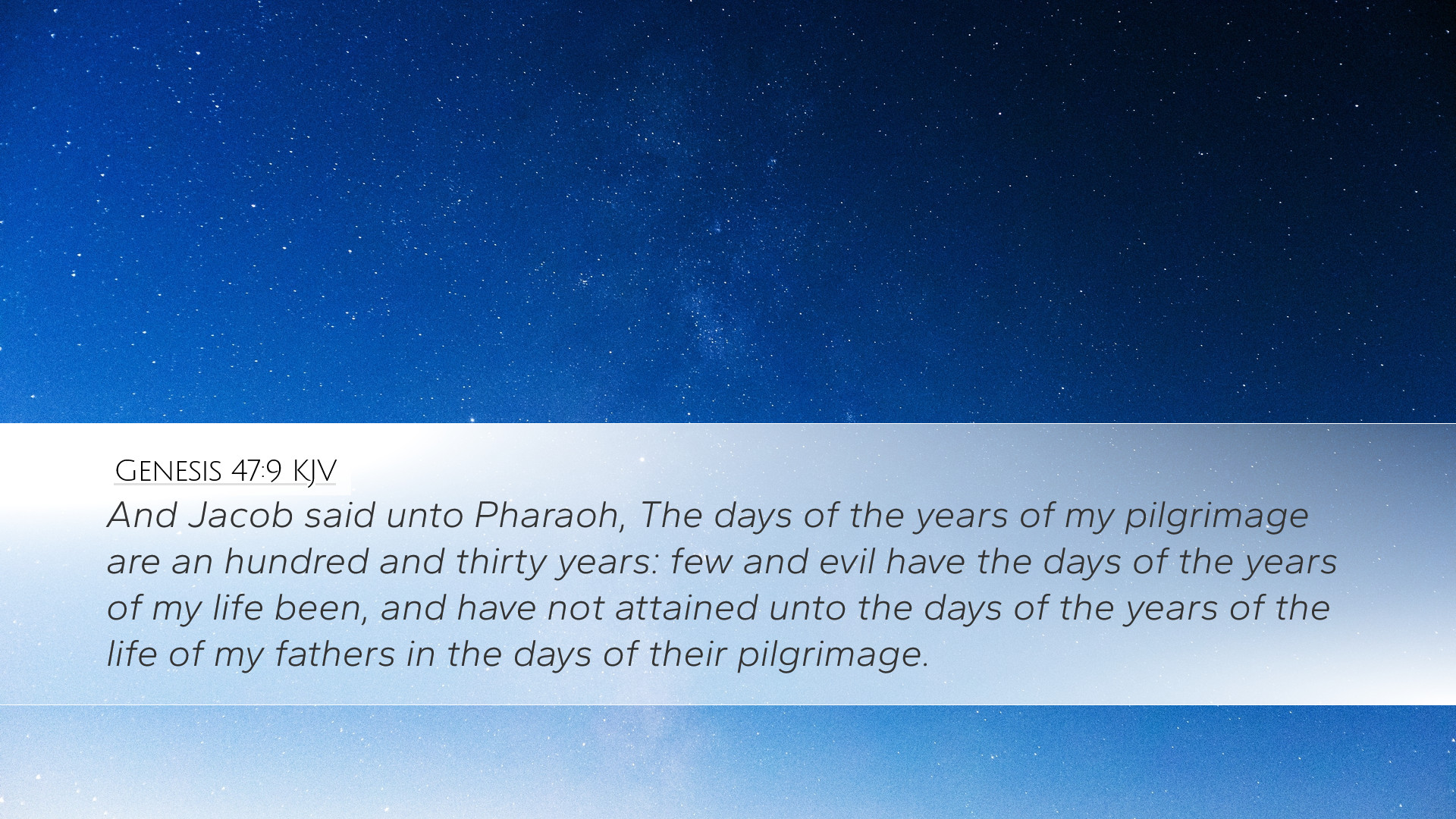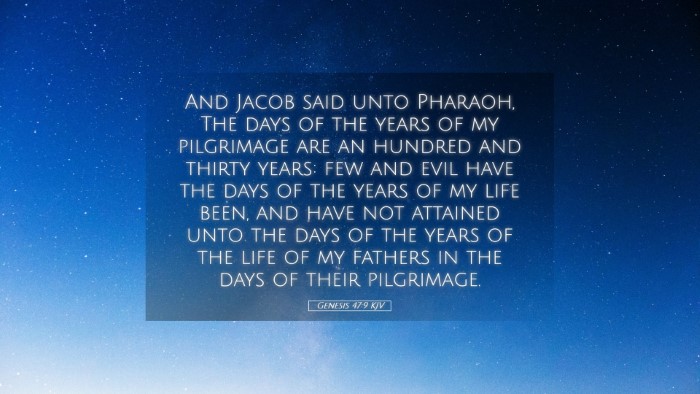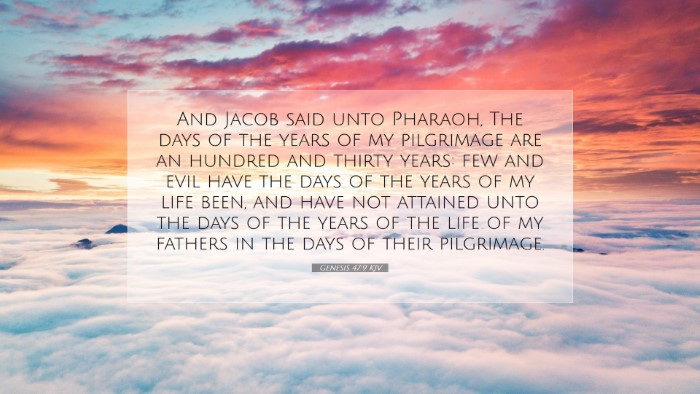Commentary on Genesis 47:9
Genesis 47:9 (KJV): "And Jacob said unto Pharaoh, The days of the years of my pilgrimage are an hundred and thirty years: few and evil have the days of the years of my life been, and have not attained unto the days of the years of the life of my fathers in the days of their pilgrimage."
Introduction
In this verse, Jacob stands before Pharaoh and articulates the brevity and hardship of his life. This poignant declaration serves as a profound moment in the narrative of the patriarchs, reflecting both a personal and theological perspective on life's journey. Through the insights of public domain commentaries, we will explore the depth of Jacob's words and their implications for believers today.
The Context of the Passage
In the broader context of Genesis 47, Jacob is in Egypt, having traveled there during the famine, guided by his son Joseph. This encounter with Pharaoh frames Jacob's reflections on life and mortality. Understanding the historical and cultural backdrop of the ancient Near East enriches our interpretation of this passage.
Historical Context
- Jacob's Journey: Jacob's age at this time, 130 years, marks a significant milestone. His pilgrimage underscores the transient nature of human existence, emphasizing that even esteemed patriarchs have a temporal home.
- Joseph's Role: As an Egyptian governor, Joseph’s role is crucial; he represents reconciliation and providence amidst difficulty. His position enables Jacob to reflect on the passage of time and God's faithfulness despite suffering.
The Theological Implications
Jacob's statement delves deep into the human experience, touching on themes of mortality, suffering, and the divine promise. Each element of his reply to Pharaoh provides rich theological insights.
Mortal Reflection
Few and Evil Days: Jacob's perception that his days have been "few and evil" (as noted in Albert Barnes' commentary) reveals a deep sense of loss and acknowledgment of life's trials. He recognizes that life is often filled with challenges, resonating with the broader human experience. This aspect of Jacob's life reflects the fallen nature of humanity and the reality of suffering that all face.
The Contrast with His Fathers
Attaining the Years: When Jacob mentions he has not "attained unto the days of the years of the life of my fathers," he highlights both a personal and collective consciousness of legacy. Adam Clarke notes that this longing for the longevity and perceived blessedness of his forefathers illustrates a yearning for fulfillment and completeness in one’s lifetime.
Spiritual Lessons for the Believer
This brief verse encapsulates significant truths for pastors, theologians, and students of Scripture. The reflections of Jacob can inform our understanding of our own lives and pilgrimages.
1. Life as a Pilgrimage
The theme of life as a pilgrimage emphasizes the temporary nature of human existence. Jacob's designation of himself as a pilgrim invites believers to view life from an eternal perspective, reminding us that our ultimate home lies beyond this world (Henry).
2. Acknowledging the Hardships
Jacob’s candid admission of his “few and evil” days invites believers to acknowledge their struggles as part of the human condition. It serves as a call to engage with and process suffering, understanding it in light of God’s redemptive narrative.
3. Hope in God’s Promise
While Jacob reflects on his hardships, his presence in Egypt symbolizes God's providential plan to preserve the family line through Joseph. This duality of suffering and providence is essential in understanding God's purposes in our lives (Barnes). Even amidst trials, there is hope in God's ultimate plan and timing.
4. The Legacy of Faith
Finally, Jacob’s reference to his fathers serves as a reminder of the importance of spiritual legacy. The faith of those who came before us can inspire our journey, calling us to live lives of faithfulness amidst our earthly pilgrimage.
Conclusion
Genesis 47:9 encapsulates life's transient nature, a humble acknowledgment of hardship, and a profound reflection on the eternal journey of faith. This commentary draws from the rich theological insights provided by the early commentaries of Matthew Henry, Albert Barnes, and Adam Clarke, facilitating a deeper understanding of Scripture that is applicable to both individual believers and the broader church. As we reflect on Jacob's words, may we also seek to understand our own lives as pilgrimages toward the ultimate fulfillment found in God.


